Ombudsman, IBAC hand down bombshell report on Labor branch-stacking scandal
Despite a bombshell report IBAC exposing a “catalogue of unethical and inappropriate behaviour” no criminal charges will be laid against Labor party members.
Victoria
Don't miss out on the headlines from Victoria. Followed categories will be added to My News.
Daniel Andrews has apologised after “absolutely disgraceful behaviour” within the Labor Party was exposed in a scathing IBAC report.
“What the report shows is absolutely disgraceful behaviour,” the Premier said on Wednesday afternoon.
“As leader of the parliamentary Labor Party and the Premier of our state, I take full responsibility … and I apologise for it.”
The government said it would implement all 21 recommendations.
But Mr Andrews said they would go “even further” than what had been outlined in the report.
In response to the report, the government will introduce “sweeping integrity reforms” in a bid to overhaul parliamentary oversight.
It will mean that all party memberships are paid through traceable means, with mandatory photo ID checks to be undertaken for all new members.
A Parliamentary Integrity Commissioner will be established — armed with robust powers — to receive and investigate complaints about possible misconduct from MPs.
An ethics committee, comprised of equal numbers of members from the upper and lower houses, will also be formed.
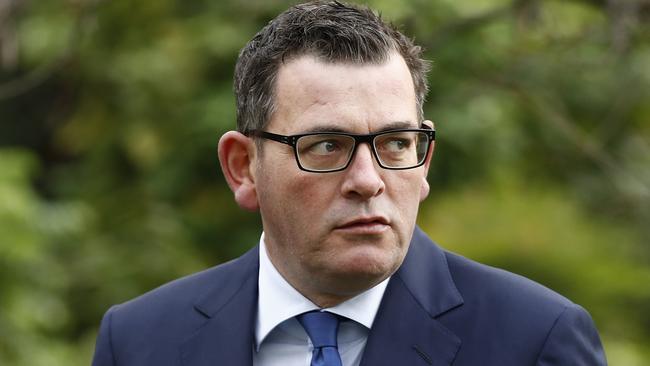
MPs will be banned from employing close family members in their electorate offices, and the Ministerial Code of Conduct will be amended to clarify that ministers must ensure the public resources made available for performing their duties are not used for party-specific purposes.
Electorate officer recruitment, management and supervision will also be reviewed alongside grant administration to ensure greater transparency and better processes.
Under the changes to hiring staff, political parties will need to fulfil minimum requirements of party administration to qualify for public funding.
The requirements will apply to established parties in the parliamentary system and a threshold will determine which parties must meet the requirements.
It could be based on the number of politicians, the number of members in their party, or the amount of public funding they will receive.
Mr Andrews said these rules would be designed not to disadvantage new parties from being established — but rather to ensure that larger parties were “held to the standard that taxpayers expect from publicly funded organisations”.
Mr Andrews described the findings as “truly shocking”, adding it highlighted an “unprecedented nature of what was going on”.
He maintained that he acted as soon as was practicable following revelations of branch stacking.
“As soon as that became known to us, we have taken action,” he said.
“That for me, is the most important thing.”
Mr Andrews’ ministerial cabinet met on Wednesday and accepted all recommendations.
Somyurek’s sensational rant
Former Andrews government minister Adem Somyurek spectacularly attacked Victoria’s integrity agencies, while insisting he has done “absolutely nothing wrong”.
Mr Somyurek says he feels exonerated despite a scathing report from the Ombudsman and IBAC declaring he acted “egregiously”.
But Mr Somyurek defended his character by claiming Ombudsman Deborah Glass was “biased” and called for her to resign.
He said he felt discriminated against because the subject of the investigation was on him and his electorate office.
“How can this ombudsman, that did not refer to the red shirts matter as corrupt once in her document … how can she sit there and elevate this matter which was worth five per cent of what red shirts was,” he said.
“The Ombudsman has got to explain now the discrepancy, the double standards, her discrimination.
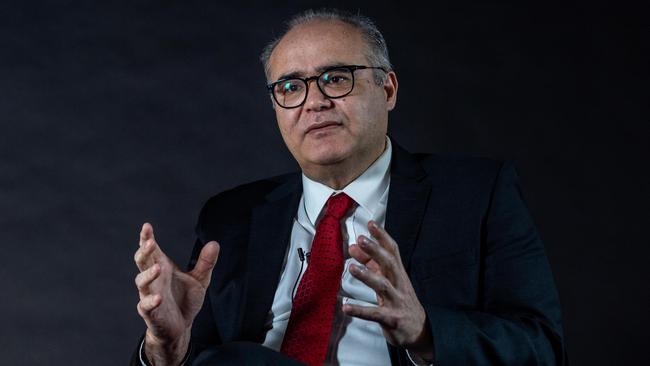
“If there was an oversight, she needs to resign immediately.
“These integrity bodies think they are not accountable. It’s time they start being held to account.
“The IBAC and the Ombudsman are pretty rotten,” he added.
Mr Somyurek maintained that while branch-stacking was deep-rooted within the Labor party, he only partook in the practice for 1½ months because he “lost the plot”.
“I might be an ethnic and I might be in the Labor Party, but I’m not a branch stacker,” he said.
Mr Somyurek he felt that he could now “get his life back” after being the “most scrutinised politician in Australia”.
“I deserve to be the only politician with a clean bill of health,” he said.
“Two integrity parties have gone through my life with a fine-tooth comb.”
Labor’s toxic culture laid bare
Andrews government ministers and their staffers blatantly abused their access to taxpayer money by preoccupying themselves with securing factional power and finding jobs for mates.
A long-awaited joint report by the Victorian Ombudsman and The Independent Broad-based Anti-corruption Commission has painted a shocking picture of a party with a toxic culture that failed to learn from the red shirts rorts fiasco.
The probe included testimony from Premier Daniel Andrews, who was not accused of wrongdoing, that branch-stacking was a serious problem in his party and a corruption risk.
But while those at the centre of the saga, including Mr Somyurek, have been slammed by the watchdogs, none of the MPs or staffers will be charged by police.
Instead, the agencies have recommended new laws that would create a new offence stopping politicians and ministers from directing their workers to engage in party political activities.
The creation of a Parliamentary Ethics Committee and a Parliamentary Integrity Commissioner has also been advised to investigate concerns.
A conversation between Mr Somyurek and Mr Andrews about knowledge of the red shirts rort before 2014 was also examined and will be the subject of another investigation.
In the report, IBAC and the Ombudsman warned the lessons of the scandal were never learnt and that efforts to fix the practice failed because it focused only on campaigning.
They found systematic evidence of a culture that favoured party politics and machinations at the cost of the Victorian public.
“The evidence, which primarily concerned one faction of the ALP, painted a compelling picture of patronage: Of jobs on the public purse according to factional loyalty and as a reward for bringing in ‘the numbers’, and widespread misuse of public resources for political purposes,” it reads.
“They range from bullying to the hiring of unqualified people into publicly funded roles, using those roles to undertake factional work, rampant nepotism, forging signatures, and attempts to interfere with government grants to favour factionally aligned community organisations – who, in some cases, failed to use the funds as intended.
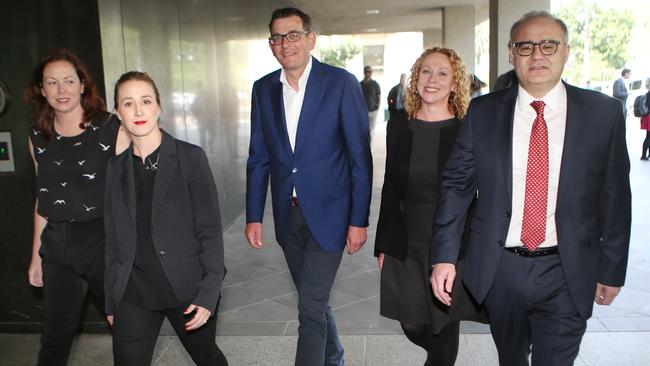
“Above all, we criticise a legislative framework that provides few, if any, consequences for abusing public resources and that allows such conduct to continue unchecked.
“The ALP’s unethical culture with respect to factional activity arose constantly during this investigation, whether as an explanation or excuse for such conduct.
“Many MPs examined by the investigation, including Mr Andrews, acknowledged that significant cultural reform is required in the ALP.”
The IBAC commissioner Robert Redlich and Ombudsman Deborah Glass on Wednesday said law changes and a new model of parliamentary integrity oversight were a “package” of reforms and should not be cherry-picked by MPs or government.
Mr Redlich said the “saddest” part about the probe was hearing young people aspiring to enter parliament believe the only way to do that was through unethical factional behaviour.
“These young people start their career with a distorted moral compass,” he said.
Ms Glass said the changes to oversight made after her red shirts investigation were “tepid” but added there were compelling reasons in the report that showed corruption risks if no action was now taken by the ALP and parliament.
She declined to comment further on the red shirts probe, including whether there was ever an opportunity to refer it to IBAC.
The integrity chiefs said there had been “institutional failings” over time that had led to “egregious” behaviour by Labor MPs.
In a message to party members, Victorian Labor president Susie Byers said the branch took the findings of Operation Watts “extremely seriously”.
“Genuine members of the branch have been asked to sacrifice a great deal – including the ability to vote in internal Labor elections – while the branch is rebuilt,” she said in the email.
“As a branch, we have made great progress towards a better party. We’ve radically improved our governance structures, created larger, single-electorate local branches; appointed a party monitor to ensure the integrity of membership rolls; and expelled a large number of non-genuine members from the party. We have also defended two legal challenges to the validity of these measures to improve the branch.”
“There is still more to do as we work to bring the branch out of administration through a state conference to be held following the state election in November.”
“There are currently matters relating to the findings of Operation Watts before the party’s disputes tribunal. The findings will also be referred to the party monitor.”
KEY FINDINGS
Among a swath of serious allegations, the report found evidence of:
• Taxpayer-funded staff dedicating much of their day to signing up and maintaining members for Mr Somyurek’s faction
• Allegations of signatures being forged by staffers for ALP membership forms, including for people who were already dead
• Employees who barely sent an email for months at a time, while others had spreadsheets detailing Labor memberships and votes for internal party elections
• Jobs for factional allies to reward them bringing in influential members, along with family members
• Factional operatives who tried to influence the award of taxpayer-funded community grants to benefit their allies
IBAC and the Ombudsman found two Labor MPs had clearly breached the Ministerial Code of Conduct but also “disturbing practices” among staff who largely knew what they were doing was wrong.
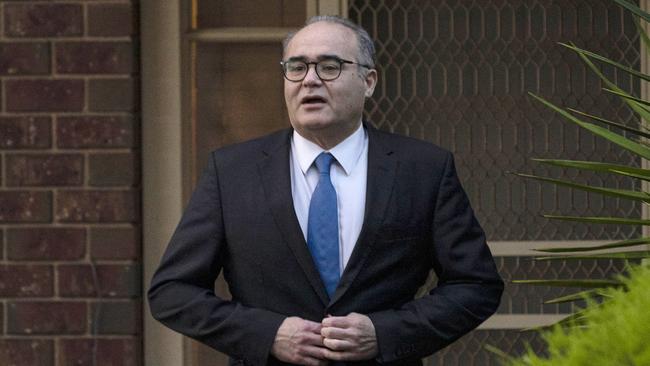
“Thus, although we consider the conduct to be egregious, the difficulties in proof are such that we cannot recommend prosecution,” the report states.
“Rather, it will now be a matter for the Privileges Committees of each house to decide whether the named MPs have wilfully brought discredit upon parliament.”
During his testimony, Mr Somyurek regularly denied the behaviour of the faction he led — and their staffers — was corrupt or said most other Labor groups were engaged in similar behaviour.
Much of the evidence discovered focused on the behaviour of people who either worked in his offices or for his factional allies and former ministers Marlene Kairouz and Robin Scott.
He did acknowledge paying for memberships for about two decades, at a cost of about $2000 per year, and at times admitted conversations played to IBAC were inappropriate, looked bad and in one case was “unequivocally on the wrong side of the line”.
The report also suggested he formed a “concocted position” to explain away footage of him withdrawing wads of cash from an ATM.
Mr Somyurek had attributed the cash to Covid restrictions limiting movement of members, but a recording played to IBAC showed him discussing what was the best response to provide while on the phone to an associate.
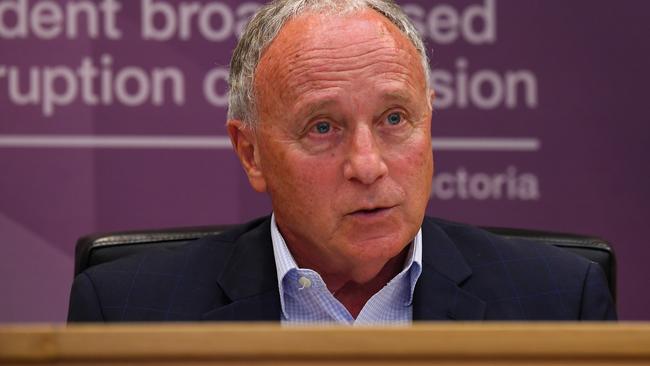
PM defends Andrews
Anthony Albanese has defended the Premier and said he was confident the Victorian branch of the Labor Party had been cleaned up.
The Prime Minister said he had seen branch stacking during his time in the ALP, but that he had taken “very strong action” to deal with it, including by ordering a federal takeover of the Victorian branch in concert with Mr Andrews in 2020.
Mr Albanese said thousands of members who had been improperly stacked into the party had been removed as a result of that intervention.
“We intervened in the strongest possible way,” he told 3AW.
“Daniel Andrews took the strongest possible action and it was a very gutsy decision.”
Former federal Labor MP Anthony Byrne admitted to his involvement in branch stacking and misusing taxpayer-funded resources when he gave evidence to assist IBAC in its investigation last year.
But the report said that because he was a federal MP, “neither IBAC nor the Ombudsman is able to comment on any possible breaches of commonwealth laws or standards”.
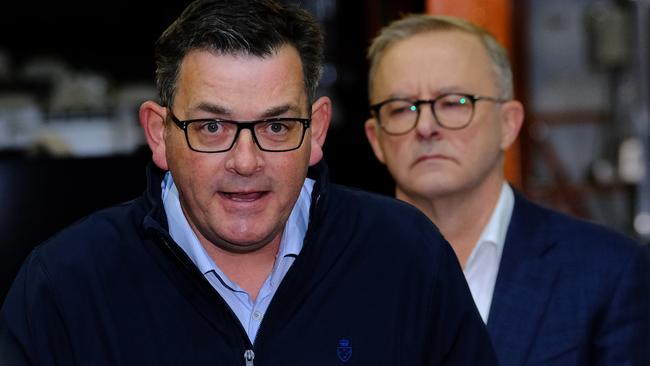
“That is corrupt in my view, and I don’t intend to engage in it,” he said.
Asked whether the Victorian government should implement all recommendations made by IBAC and the Ombudsman, the Prime Minister said: “I haven’t seen the report.”
He said Labor luminaries Steve Bracks and Jenny Macklin did a “magnificent job” to fix the Victorian branch of the Labor Party since they spearheaded the federal intervention.
“That’s what leadership looks like. We undertook that leadership, and a result, what we have is a different set of rules and structures, different personnel in place … to ensure that people could have confidence in the Victorian Labor Party going forward,” Mr Albanese said.
“I have that confidence.”
Mr Albanese indicated he was satisfied that the intervention — which has robbed party members of voting rights for three years — could end as planned next year.
“The recommendation wasn’t that we suspend the normal operations of the party indefinitely,” he said.
“The recommendations were that we take action. We’ve done that.”
Asked if he was confident the Victorian branch had now been cleaned up, Mr Albanese said: “I am.”
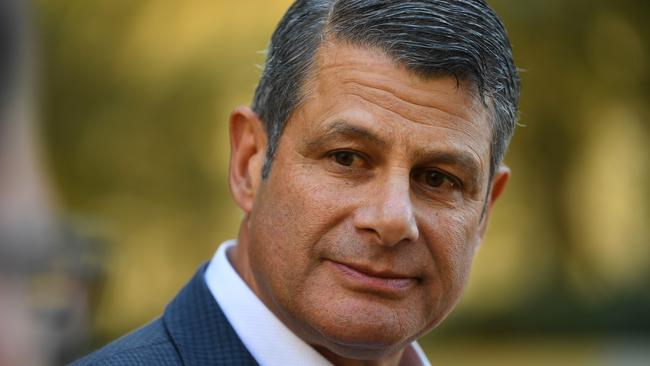
Liberals, Greens react to report
Opposition Leader Matthew Guy said the findings from Operation Watts exposed a “political party unsuitable to hold office”.
For decades, Labor has “treated people as pawns”, “used taxpayers’ money as their own” and “encouraged the use of public office for personal gain”, Mr Guy said.
“This critical investigation shows a Labor government mired in corruption, cover-ups, and political games at the expense of Victorians,” he added.
“Victoria needs a premier and a government totally focused on ending the health crisis and supporting communities to recover and rebuild.
“Remember this November, Daniel Andrews and Labor are not a party for our state’s future.
“Only a change in government will make Victoria No. 1 again.”
Opposition spokeswoman for government scrutiny Louise Staley said the investigation highlighted a “culture of corruption within Labor dating back decades”.
“Daniel Andrews and Labor have totally lost sight of serving our community and are only interested in themselves. They are not fit to govern,” she said.
“Labor is not concerned with Victorians, just themselves, their political careers, and what benefits them.”
Acting Greens leader Tim Read said the findings painted a “disturbing picture of Labor’s toxic factionalism politics”.
“MPs are in parliament for the public good, not to spend time and public money on their careers and toxic factionalism,” Dr Read said.
“We need a strong umpire to uphold community expectations.
“At the federal election voters delivered a mandate on integrity in politics. That needs to happen in Victoria where the rot has set in.”
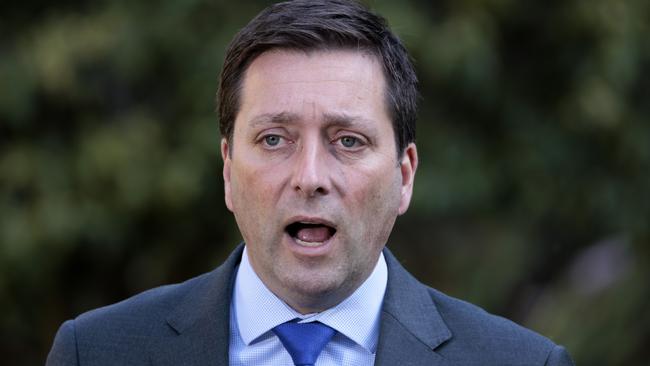
The moderates
IBAC Commissioner Robert Redlich said the behaviour by staff was of concern but that “primary responsibility rests with the MPs for whom they worked and their factional leaders”.
“The unethical culture that was such a feature of this investigation, whether as an explanation or excuse for bad conduct, lies at its heart.”
Former federal MP Anthony Byrne and state MP Luke Donnellan both admitted to paying for party memberships, with Mr Byrne’s office often used for Moderate Labor factional work.
Ms Kairouz admitted to being involved in branch-stacking and paying for memberships but the way she directed staff was examined the most closely.
Spreadsheets were discovered in her office that showed electorate officers were engaged heavily in securing members and voters for internal ALP ballots.
Text messages also showed her senior staffers involved in directing this behaviour, including what to do at branch meetings.
“At Ms Kairouz’s electorate office, a large amount of material was located evidencing work dedicated to the support of Ms (Kaushaliya) Vaghela as a candidate for the Western Metropolitan region,” the report said.
“This included material evidencing that one of Ms Kairouz’s electorate officers … worked on this matter while she was meant to be working as an electorate officer.
“Mr Byrne in his evidence stated that he had observed Mr Somyurek and Ms Kairouz coercing staff to do things that they did not want to do – in particular, activities connected with factional politics.
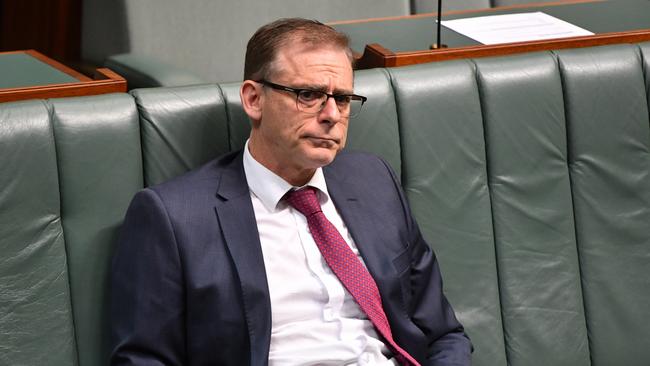
“He described it as a relentless focus to ‘just get this done’ to the exclusion of just about anything else.”
Mr Scott repeatedly denied any wrongdoing as Multicultural Affairs Minister while questioned about hundreds of thousands of dollars in grants to groups allied to the Moderates were examined.
He was not found to have acted inappropriately but the report raised concerns a factional ally of Mr Somyurek, Rick Garotti, had petitioned his ministerial staffer over major funding for the Somali Australian Council of Victoria.
SACOV, run by another Moderate Dr Hussein Haraco, did not receive the money but was successful in other government grants.
“It is difficult to conclusively determine Mr Scott’s knowledge or awareness at or around the time of the text messages (about the funding),” the report said.
“Nevertheless, it is of significant concern that Mr Garotti, as an influential member of the Moderate Labor faction, considered it possible to involve himself and Mr Scott’s ministerial adviser in an arrangement to improperly influence a grant to a factional ally.
“The casual and open manner in which he communicated about such an arrangement with the leader of the faction, Mr Somyurek, suggests confidence on his part that such a proposal would be seen by others in the faction as acceptable.”
The agencies could not provide evidence that grants provided to Moderate-aligned community groups went to ALP memberships, but warned of poor accounting practices that made this difficult to track.
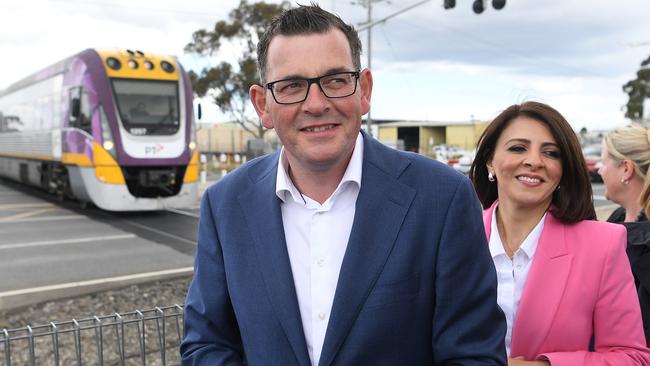
Interview with Andrews
Victoria’s integrity agencies also detailed an interview with Premier Daniel Andrews about the saga and the party he leads.
When questioned, he agreed there had been widespread branch-stacking of people who were not genuine Labor members and that these were paid for by others.
“He also agreed that the practice was not limited to one faction and occurred ‘across the board’,” the report states.
“Mr Andrews denied any personal knowledge of or involvement in such practices … He made the distinction between having suspicions about people who might be engaging in the practice and having actual knowledge of specific people who engaged in such practices.
“Mr Andrews agreed that branch-stacking was a serious problem and that it could amount to a corruption risk in the sense that it could lead to the misuse of taxpayer or public funds in the pursuit of factional activities.
“He agreed that elimination of branch-stacking was necessary to eliminate the risk of corruption.”
But IBAC also quizzed the premier on a claim that Mr Somyurek had raised concerns about the red shirts rort and its illegality prior to the 2014 election.
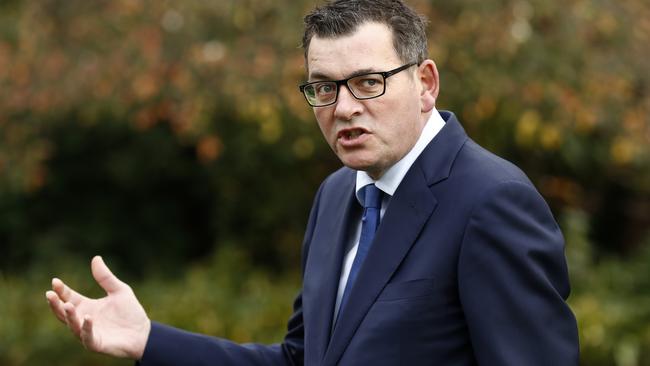
He was alleged to have used words to the effect of: “Do you want to win an election or not”?
Mr Andrews said he didn’t believe he used those words and that it wasn’t the type of language he used.
“I think people who know me would not see me speaking in those terms, would not describe me as someone who speaks in those terms.”
When pushed about whether he understood the red shirts scheme, the premier said he “probably” did but not have concerns at the time.
“I was aware that it was about engaging staff to be involved in campaigning. My recollection is that at no point did I have a sense that what was being proposed was not in accordance with the rules or advice from Parliamentary Services,” he said.
“My memory of it is that it was – pooling arrangements have been part of parliamentary parties for quite some time, our party and others. I expect I viewed it in those terms.”
The report said it was clear there was a short conversation between the two about the scheme.
The Ombudsman will now probe the scheme again after it was referred to the Legislative Council and the conversation is expected to be re-examined as it looks into the role of Mr Andrews at the time.
“The above conversation will be the subject of consideration in a separate report by the Ombudsman in response to the Legislative Council’s referral,” the report said.
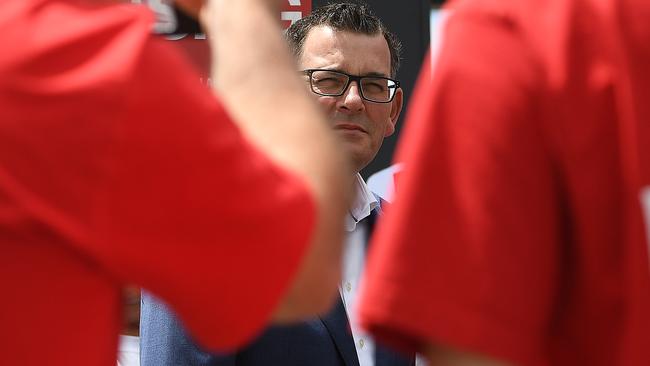
Red Shirts
Throughout its investigation, the integrity agencies heard evidence that the exposure of the red shirts rort had failed to discourage the misuse of staff.
Mr Somyurek alleged that changes to the code of conduct were deliberately written to focus on campaigning, which meant factional work by staffers was not restricted.
He said some MPs thought this meant they were still free to direct their staff to this way.
“The Premier, Daniel Andrews, agreed at his examination that both elements of the Members Guide definition constituted party-specific activities, but he strongly denied the existence of a ‘unity ticket’ to only include one element. He said that Mr Somyurek’s description of a ‘grand coalition’ was a ‘fantasy and a rather self-serving narrative that everyone’s doing it’, but he was not able to provide a reason why only one limb of the definition was used in the amendments.”
Victorian Ombudsman Deborah Glass said: “My ‘red shirts’ report highlighted the need for reform in 2018 – and this report highlights how little has changed.
“The current legislative framework provides few, if any, consequences for abusing public resources and allowed the conduct we revealed in this investigation to continue unchecked.
“Trust in our politicians is declining and will decline further if real action is not taken. The case for meaningful reform is now both compelling and urgent.”
Change is needed
“But the case for meaningful reform is now both compelling and urgent.
“The Ombudsman’s red shirts report highlighted the need for reform in 2018 – both to prevent public funds being used for party-political purposes and to empower an independent agency to investigate when allegations are made.
“The response was tepid, and this report highlights how little has changed.”
The integrity agencies said there were “continuing weaknesses” in the oversight of the Victorian parliament, which led to them spending too much time investigating allegations of misconduct.
They recommended that a new cross-party ethic committee would help ensure MPs were following the rules while an independent integrity commissioner would investigate complaints.
New laws would be introduced to the parliament by whichever party won the next election.
Tough offences would also be added so that MPs and ministers who direct staff to do party work, as described in the probe, could be prosecuted.
Close family members would no longer be allowed to be hired in electorate offices and regular audits held into how MPs used their allowances.
More Coverage
Read related topics:Daniel Andrews




